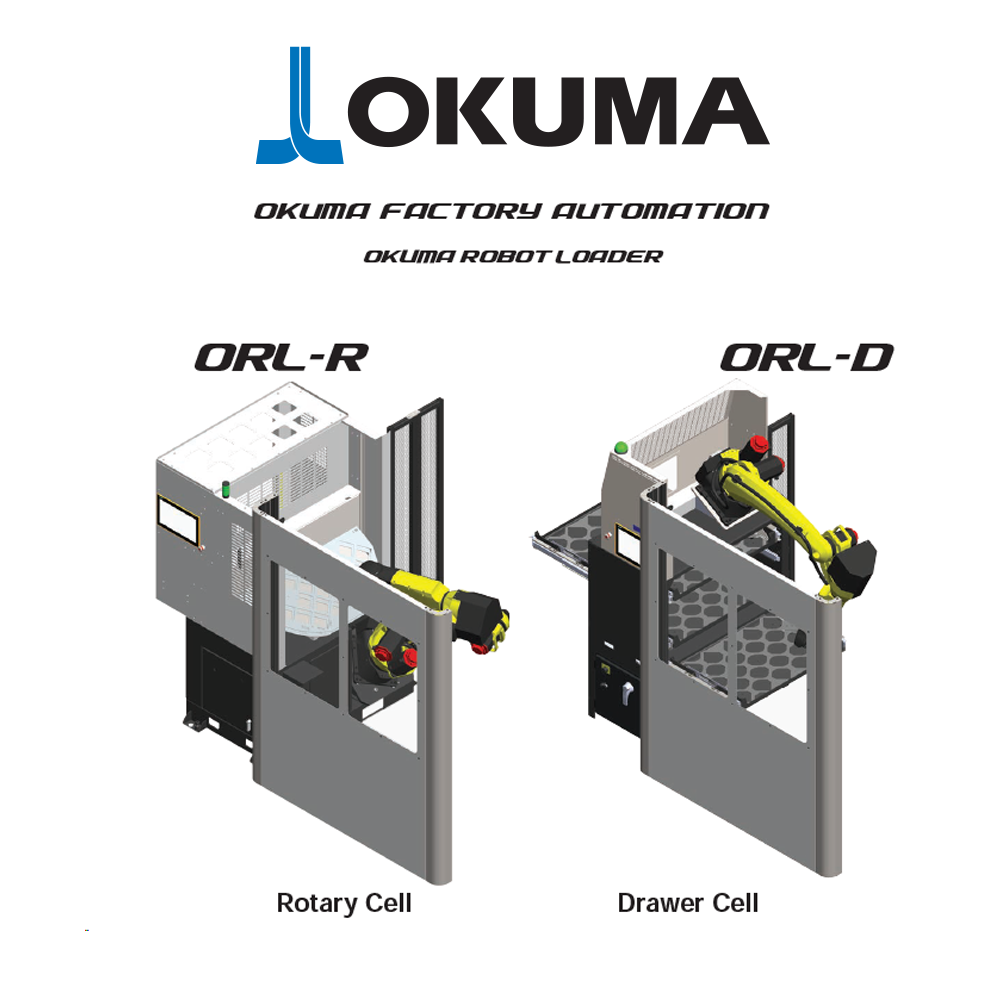Okuma Robot Loader (ORL)
Okuma Robot Loader (ORL)
Each ORL product has been strategically designed with a compact footprint, requiring only between eight and nine feet of floor space. Additionally, each product utilizes industry-leading FANUC industrial robot arms and grippers which can hold a payload of up to 25 pounds.

The Factory Automation Division of Okuma America Corporation, a global leader and builder of CNC (computer numeric control) machine tools, controls and automation systems, is pleased to announce the launch of a proprietary new line of automated robotics – the Okuma Robot Loader (ORL) series. The ORL series will make its debut at the company's booth at the International Manufacturing Technology Show (IMTS) in Chicago, Illinois, on September 9 – 14, 2024.
The new ORL product series includes three products, all of which are designed to seamlessly load and unload workpieces from both new and pre-existing Okuma machines to increase productivity and aid operators' efficiency. The new ORL product family includes:
- ORL-D – Okuma Robot Loader – Drawer, a drawer-style workpiece storage unit with a standard template that holds up to 92 workpieces. An optional template can be purchased that holds up to 180 smaller workpieces.
- ORL-R – Okuma Robot Loader – Rotary, a disc-style workpiece storage unit with a variety of template options that can hold up to 166 workpieces
- ORL-MC – Okuma Robot Loader – Machining Center, a workholding and workpiece storage unit for up to 288 workpieces. Patented MultiGrip™ workholding allows users to automate multiple OP10/OP20/OP30 part numbers in high-mix, low-volume manufacturing.
Each ORL product has been strategically designed with a compact footprint, requiring only between eight and nine feet of floor space. Additionally, each product utilizes industry-leading FANUC industrial robot arms and grippers which can hold a payload of up to 25 pounds.
At IMTS 2024, the Okuma Factory Automation Division will display two ORL units paired with Okuma machine tools at the company's booth (#338500):
- ORL-R – This unit will be paired with an Okuma MULTUS B300II, a multitasking machine, to load and unload demo parts. An accompanying cobot will transfer demo parts from a cart, transported by an Autonomous Mobile Robot Cell (AMR), into one of the unit's pallet drawers.
- ORL-MC – This unit will be paired with an Okuma GENOS M560V0-5AX, a 5-axis vertical machining center, and an Automatic Tool Changer (ATC). The unit will load and unload demo parts from the machine onto the ORL pallets. The unit will also switch the workholding in the machine based on which cutting operation will be performed on the part.
"Our team is excited to bring the ORL series to market and showcase its capabilities at IMTS 2024," shared Wade Anderson, Okuma America's Vice President of Engineering and Factory Automation Division. "With its compact footprint and easy integration process, an ORL unit can quickly make an impact for machine shops of any size."





